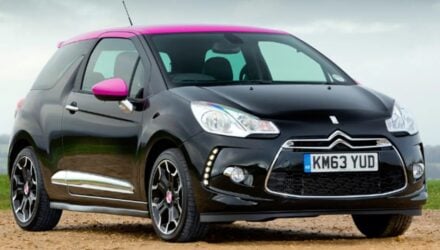
New E.ON drive EV charging facility in Brimingham.
King Coal has been dethroned, the rise of renewables on our power networks has pushed its contribution from 40% to 6% in just ten years. The challenge now is to do the same on our roads.
Policymakers and businesses have achieved a significant amount to get us in a position where we can deliver renewable, low and zero carbon generation at a lower price than conventional generation.
Yet, when it comes to cars, just 7% of cars registered in January to July 2019 were electric*. Clearly there is plenty of work still to be done here – especially as the transport sector currently accounts for around a third of the UK’s carbon emissions**. E-mobility provides us with one of the tools to do this.
Electric vehicles are responsible for considerably lower emissions over their lifetime than conventional vehicles – if we applied these savings to the millions of cars on our roads then the reduction in carbon emissions would be huge.
As with power generation, both Government and businesses will play an important part in this transition, although policy is already moving in the right direction. Last year, the Government’s Road to Zero Strategy confirmed its ambition for at least half of new cars to be ultra-low emission by 2030. The UK will also end the sale of new conventional petrol and diesel cars and vans by 2040, although we would like to see a more ambitious deadline of 2030.
Range anxiety
Yet there are still drivers out there put off from buying an electric vehicle as a result of concerns surrounding the availability of charge points and battery technology. ‘Range anxiety’, the worry that your car will run out of charge before you reach your destination, is often cited as a key reason holding back new buyers from making the switch to electric.
Of course, this is understandable, none of us want to be constantly worried about how frequently our car will need a re-charge. But this is despite the fact that the majority of us tend to go on much shorter journeys than we think. The average car journey in the UK tends to be less than 10 miles***, well within the range of the electric vehicles currently on the market – the latest battery electric vehicles have a range of more than 200 miles.
Range anxiety is also driven by a misconception of the current state of our charging network. As of May this year, we are now at the point of having a greater number of charge point locations in the UK than there are petrol stations and there are now more than 25,000 charge point connectors in the UK****. This is a staggering achievement considering where the network was just a few years ago. But despite this great progress, we still have quite a long way to go.

Electric car at a charging station
Developing our charging infrastructure
The provision of ultra-fast charging (UFC) stations in an effective network is one of the crucial next steps in the transition to electric mobility. The 175kW charge points which are starting to come to market can boost the batteries of the latest generation of electric cars with a range of around 100 miles in just 10 minutes.
But charging infrastructure is not just about quantity or speed. The availability of the fastest charging points in the right locations will be key if we are to effectively switch to electric without significantly changing our transport habits. Making recharging as quick and convenient for motorists as refuelling currently is can only improve the chances of them considering going electric for their next new car. We are committed to doing our bit – E.ON recently opened its first UFC facility in the UK and we already operate more than 3,000 charge points across Europe.
Accelerating the transition
With time, this network and our wider charging infrastructure must expand. We will be doing our bit by providing sustainable electric vehicle charging to drivers, wherever they want to be able to use it – at home or work, on a motorway or at public parking spaces or leisure facilities.
Equally, drivers’ improving perceptions of the availability of fast charging is going to accelerate the uptake of electric vehicles, requiring further innovation and provision of charging technology to keep pace with the increase in demand.
There is no slowing down for the UK’s charging network in sight then. As electric becomes the new normal in our transition to a zero-carbon future, we will accelerate on the road to a more sustainable future.
Author: Hannah Collishaw, Director of E.ON Drive in the UK
* https://www.smmt.co.uk/wp-content/uploads/sites/2/July-Fuel-2019-and-YTD-cars.png
** https://assets.publishing.service.gov.uk/government/uploads/system/uploads/attachment_data/file/790626/2018-provisional-emissions-statistics-report.pdf – 2018 BEIS emissions figures
*** https://assets.publishing.service.gov.uk/government/uploads/system/uploads/attachment_data/file/822089/nts-2018-factsheets.pdf – 2018 Department for Transport 2018 National Travel Survey Factsheet (UK households with a car drive an average of 7,360 miles across average of 1,041 trips)
**** https://www.goultralow.com/ev-charging-point-map/


















